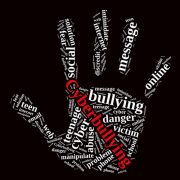Given that our work is centered in our sexual selves, it often feels easier to just ignore bad feelings and hope they go away. But few of us truly have the ability to shake off negative encounters like they never happened. Instead, hurt and insult fester, poisoning our self-esteem, rattling our minds while shutting our bodies down. – Lola Devina
A tweet popped up recently that asked, how do you maintain a healthy outlook when you work day-in and day-out with entitled, toxic, and/or abusive customers. This is such a big and important question. To answer it, I looked to two of my all-time favorite go-to goddesses: Lola Devina and Brené Brown.
Sex worker and author, Lola Devina, gives clued-in heartfelt advice about how to cope with the emotional toll of sex work. Brené Brown’s anti-shame work is changing the way our culture thinks about shame and compassion. The following advice is chosen from their work and the work of others.
Separating the bad that is thrown at us from the outside world from our own unhelpful beliefs
- Ask, What is the story that I am telling myself?
When something happens that triggers strong emotions, we often immediately create a story to make sense of what happened. These stories are often one-sided worst-case scenarios, and they seldom contain the full truth. Brené Brown.
Brené calls these stories the Stormy First Draft. “SFD is our brain’s way of making sense of something when we don’t have full information. We are a meaning-making species. In the absence of data, we make up stories because having complete information is a self-protective survival skill. But these stories often magnify our fears and anxieties.”
Example: A guy on Twitter tweeted some horrible things about me.
The story I am telling myself is: He is an asshole. Why is he being so mean? I don’t even know him. ..I must have done something wrong.. at least, I could have handled it better. If only I was (wittier, more professional, better, ______ ), then trolls like him wouldn’t target me.
- Reality check your story. Often, we fill in information gaps with details that are biased by our fears. Reality checking helps us to separate what they did from what we believe.
Reality check: All I know about Twitter guy is that he was being abusive. What I don’t know is if he is an asshole or that I could have done anything differently to stop his abuse.
Assumptions about the abusive Twitter guy, our abilities, or our self-worth create an emotional hook that can easily spiral downward. Anger, resentment, and self-criticism can send us into a black hole or exhaust us while we suppress the emotional pain.
*Helpful extra: Listen to Lola on Anger, Brenè on Stories and Brenè on Shame.
Getting to know your own emotional hooks
- Ask, how did the situation make me think about myself?
When something bad happens at work, it is natural to feel deflated for a while. But feelings that fester can signal that our own negative self-beliefs have been triggered. What beliefs did this encounter, situation, or bad day bring to the surface for you?
The story that I am telling myself: If only I were …. It would be easier.
What it makes me think about myself: I am not good enough.
*Helpful extras: read the Science behind Inner critics and Steps to defuse inner critics.
- Use a reality-checking app to unhook from harmful self-beliefs
Upsetting self-beliefs are often based on a morsel of truth and a whole lot more of exaggerations, anxious predictions, and/or oversimplification. Use the free app Moodtools Thought Record Diary for Android or Apple.
- Unhook from stigma and shame
Davina explains in her book, Thriving in Sex Work,
..clients show up with all their baggage, expecting us to deal. They want to be turned on; they want to get off. They crave beauty, kink, variety, danger, and role-play.
Often, clients are ashamed of their bodies, their desires, their infidelities and/or their patronage.
Like black holes in reverse, clients bend badness and blame away from themselves. I call it “outsourcing shame.” […] Clients also wrestle with guilt. Many clients are married or partnered or come from religious backgrounds, taking a little taste of something they don’t want anyone to know about. Nobody wants to feel bad while paying to feel good, so they shunt their ick onto us..
Davina offers relief,
It is not nice to be on the receiving end of bad behavior, especially as a reward for doing our jobs so well. In the immediate aftermath of getting slimed by a client, you may well be furious: Listen to Lola on Anger. If you’re feeling ashamed, deflated, or gross: Listen to the shame exercise.
*Helpful extras: Read How to break the shame cycle.
Leaning on your emotional resources
- Self-care
Davina’s website offers advice from her book. Many of the important subjects, many chapters are free to read or to listen to. Here is an excerpt from, When a client makes you feel like crap.
First: Take care of your body. When we’re humiliated, that hurt has to move through our bodies somatically. Very few of us learn this as children. Instead, we’re taught to rely on our intellect to process bad emotions. But our minds can’t move what’s stored in our muscles and joints and voice boxes and bones. So, as soon as you can:
- Get right in the shower.Wash the day away.
- Eat moderately and mindfully, but only if you’re hungry.Don’t starve yourself as punishment or stuff yourself in an attempt to dull the pain.
- Unless the gym is your happiest place on earth, don’t force yourself through your regular routine.That’s like piling on extra homework when you’re already failing class. You’ll either spend that time zoning out, or counting the seconds until your workout is over—neither is good. The best self-care is to be fully present, addressing your feelings directly.
- Scream into a pillow, kick a punching bag, take a long walk or bike ride. Play loud music, dance like you don’t care, sing at the top of your lungs. Move hard and fast and long enough so that you’re breathing hard. Wear yourself out with it.
- While moving, say what you’re feeling out loud: “Scared, scared, scared, scared.” “Ouch, ouch, ouch, ouch.” “Pissed, pissed, pissed, pissed.” This lets you fully feel your emotions in your body, throat, and mind, allowing that energy to move through you.
- Call a buddy, if you can—get yourself some sympathy, by all means. For some perspective, it can help to ask the question: Am I going to still be mad about this a year from now?
- Compassion
Compassion means feeling concerned for someone’s suffering and wanting to help. The feeling itself creates mood changing brain chemicals.
Extend compassion to Twitter guy. Yep, that guy.
Davina says,
I know—it’s not fair. Why do we have to be the ones to turn the other cheek when we’re depleted and aggravated and insulted? But as the Buddha said, “You will not be punished for your anger, but by your anger.” When we fight fire with fire, the whole world turns to ash. Instead, we fight fire with water.
To extend compassion, Davina suggests,
Maybe they were in the middle of a shit day far worse than anything you can imagine. Maybe they just lost their job or their grandmother or their dog—send them a blast of unconditional love. That handsy fan with no manners? See them for what they are, someone lost in their neediness, stunted by desire for what feels just out of reach.
Muster what compassion you can manage—people with happy lives don’t act like [that]. Picture your tormentor’s face in front of you, and breathe into a simple prayer of forgiveness and acceptance.
Compassion doesn’t mean that you excuse or put up with bad behavior. Take whatever steps you need to protect yourself. Compassion enables you to let go of anger and resentment that so often leads to burn out, so that you can refocus on caring for yourself.
Extend compassion to yourself, even to your inner critics.
Our inner critics are really just bullies inside us. What is most often true about bullies is that they show anger because they are themselves scared. This is true in the outside world, and this is true in our heads.
Extending compassion to our inner critic doesn’t mean agreeing with it or allowing it to govern us. It means that we listen, understand and gently translate its destructive input into something more constructive.
*Helpful extra: Read for steps on How to defuse your inner critics.
- Practice Radical Acceptance
Radical acceptance means that we don’t try to change anything, rather we accept ourselves exactly how we are in this moment. Perhaps the hardest part of this exercise is accepting that so much of clients’ behavior is outside of your control. You may not be able to control what is thrown at you but you can influence how you react to it.
Radical Acceptance is Reminding Yourself Every Day, You Are Fabulous. You Are Loved. You Are Doing Your Best.
Acceptance is not a one-time occurrence. We choose acceptance this moment and then we choose acceptance when we start to struggle and then we choose it again. Radical acceptance is often much harder in practice than it sounds, but it is your best bet at stopping the negative spiral and building resilience in the industry.
*Helpful extra: Read How to handle cam loneliness
- Supportive relationships
Tapping into a supportive relationship, even with just a short phone call, triggers the cuddle hormone, oxytocin, in our brains. It can change our mood in minutes.
Hug someone or cuddle a fur-baby. A 20-second full-body hug or cuddling a pet triggers positive feelings. Even cuddling a favorite stuffed animal can create a sense of well-being.
Get a cam buddy. Davina recommends buddying up with a colleague. Agree to call each other for emotional support or distraction when you are having an off day.
One dear friend of mine is the best at this — whenever I’m in crisis, she doesn’t try to be a mind reader. She simply asks, ‘What do you need from me right now?’ A reality check? Reassurance? Advice? A shoulder to cry on? Active, loving listening? The best way to get the help you crave is to tell people what you need. Don’t assume they know, don’t make them guess.
Be someone’s super awesome support. Or reach out whenever you are feeling low. As well as psychotherapy and coaching, Pineapple Support offers emotional support in the form of 24-hour peer-to-peer chat. You can volunteer any hours that are convenient for you and be an awesome support to your peers.
Connect with your peers and tap into that network of super awesome Pineapple Support just for you. Remember, if you feel overwhelmed or just need to connect with someone, Pineapple Support is here for you. Contact us at PineappleSupport.com.


